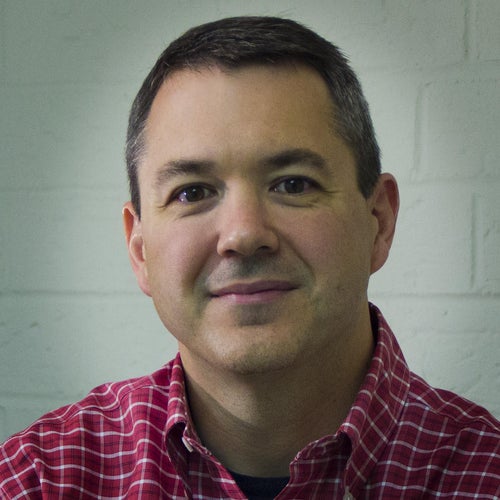Can you walk me through the Trilogy application and interview process?
I applied on Crossover, where the initial application process is AI-powered, reflecting the company’s ideology from the outset.
The early stages of the interview process included a cognitive aptitude test (CCAT), a basic coding test, and AI-based tests for debugging and implementing new features.
The use of AI in the tests was a novel experience for me and prompted me to learn and research efficient AI prompts and usage. After passing these tests, I was invited to the interview stage.
What impressed me most was how both of my interviews, initially scheduled for later in the week, were moved up by the interviewers, who contacted me to see if I would like to advance the meetings.
This approach exemplified the company's ideology of never procrastinating, tackling work head-on, and maximizing productivity. The entire interview process was expedited, completed within a week, with decisions made swiftly and without unnecessary delays.
I received an offer within a day of the final interview and was even invited to start immediately. The decisiveness and speed of the entire process made a lasting impression on me.
Learn more about the selection process.
What was your onboarding experience like, and how did it prepare you for the role?
My manager guided me through the first few weeks at Trilogy, explaining the company’s culture and mindset. He assisted in shifting my focus from the code-bloated, standard implementations of my previous jobs to a role where I function as an AI manager of tools.
My teammates also supported my onboarding, helping me resolve any doubts and ramp up effectively.
What does a typical day look like for you at Trilogy?
It starts with me identifying and outlining the tasks to be completed for the day and planning my activities accordingly. I always proactively communicate potential issues that may become obstacles for upcoming tasks.
Because we’re a remote-first company that highly values deep work, I typically account for delayed responses to queries. Then I execute the tasks outlined in my plan, dedicating time to deep work on these projects. I’ll begin each task by initially using AI tools to address the problem, and subsequently refine the results they generate.
At the end of the day, I update our team’s knowledge base with new findings and concepts. This allows AI agents to use this updated information to address future gaps.
Which project or feature did you recently find exciting or challenging?
I added a new product – Languard - to AppManager and appreciated the AI's assistance in this process. Providing the design documents to ChatGPT helped clarify the product's motivation and overall structure.
Uploading the codebase as a ZIP file to ChatGPT helped me to identify the technologies used in the existing repository. This allowed me to research and understand these technologies in depth, including how they integrate with our current repositories.
ChatGPT also generated approximate implementation logic based on existing integrations with AppManager and provided starter code. I then refined the generated code using cursor to complete the integration.
How has Trilogy's AI-augmented software engineering approach influenced your work?
Since joining Trilogy, my role has shifted towards a higher-level perspective.
I now function more like a manager, focusing on new features from a business and design standpoint rather than from a coding angle. As long as the necessary data and desired features are clearly defined, the specific coding and implementation processes can be efficiently handled by AI tools.
By supplying these tools with the appropriate context and problems, we can collaboratively develop and implement solutions step-by-step.
How do you leverage AI tools in your daily coding tasks, and how has it impacted your efficiency?
I begin any project by consulting AI tools - ChatGPT, Perplexity, or Claude - depending on the nature of the problem, allowing them to first address the issue.
If I lack context about the problem space, I provide ChatGPT with the design documents to assist in summarizing and understanding the project, and to respond to any questions I might have.
After receiving an initial solution, I use Cursor to refine the approach, focusing on debugging and resolving issues within specific segments of the code. Towards the project's conclusion, I enhance the overall code quality using Cursor and conduct comprehensive end-to-end testing.
Both ChatGPT and Perplexity are invaluable in establishing and managing the end-to-end testing environments during this process.
Can you provide a specific example of how you used AI to solve a complex problem or optimize a feature in one of Trilogy's strategic product lines?
I worked with AI to optimize the account page, which initially required about 10 network calls and code spanning three repositories.
I started by using eRAG, our internal AI tool, to identify the repositories involved. Next, I used Cursor to trace the path taken by the account page rendering process.
With Cursor, I pinpointed where each network call was made, and how the responses were used and maintained. Armed with this information, I identified and addressed redundant calls and issues with data handling and retention.
Finally, with Cursor's assistance in implementation, I reduced the number of calls to five and cut the latency of the most time-consuming call by one-third.
How do you collaborate with other members of the global engineering team?
So far, I haven’t had much need to depend on others.
When I encounter an issue or have a question, I can usually either find relevant documentation on the business decision or decipher the engineering logic by applying AI tools to the codebase.
Most of my interactions with engineers outside my team revolve around their use of AI and exploring ways I can further optimize my work through AI applications.
How does Trilogy's focus on continuous improvement influence your day-to-day work?
Trilogy encourages us to dedicate half an hour each day to browsing Twitter(X), staying current with new technologies, and maintaining a "second brain."
A second brain is a document that details each individual's unique AI-based approach, including ongoing findings and work aimed at achieving their respective end goals.
An iteration journal on the other hand is a document that tracks each individual’s tasks and significant decisions or discoveries. Everyone is free to review and comment on others' journals, which fosters improved decision-making processes for the future.
Trilogy also enrolls us in courses that support our ultimate goal of creating AI-based agents to automate or solve our daily tasks.
What tools and technologies do you use every day to accomplish your tasks?
I primarily work with ChatGPT, Perplexity, eRAG, and Cursor.
Perplexity is a replacement for Google and provides solutions to real time problems. I also utilize ThinkWithMe (An internal AI-powered brainstorming tool) to help streamline and implement complex tasks.
How do you prioritize and manage your workload to ensure you meet deadlines and deliver high-quality work?
Each individual is given full ownership of a specification.
During the design and implementation planning phases, we refine the low-level details of the spec and break it down into smaller tasks. Our team operates using an iteration journal model. Daily, we determine the tasks to be performed and devise a high-level plan for executing these tasks.
Then our manager reviews the iteration journal and provides comments and feedback based on the progress and status of each task.
What aspects of Trilogy's engineering culture and work environment do you love?
Our culture prioritizes efficiency and task delivery above all else, eschewing fixed ideologies in favor of the flexibility to completely revamp our work model if it enhances efficiency.
There's a shift from nitpicking engineering details to focusing on overall results delivery. Many companies concentrate on implementing new, sophisticated code, which often introduces delays, rather than optimizing overall design.
We maintain fluidity by not adhering to familiar technologies just for the sake of familiarity. Instead, we rapidly adopt any new tool or technology, utilizing AI to refine the details.
Explore full time remote roles.
What growth and professional development opportunities have you experienced at Trilogy?
Trilogy is a company committed to continuous improvement and rapid progression. I find myself working with greater precision, speed, and decisiveness.
Tasks that previously took a week to complete can now be finished in a day. I also track my time and work more meticulously at a minute level and continually seek to enhance my work model and environment.
Trilogy fosters our growth by enhancing our interactions with AI. It provides learning opportunities that help us develop and deploy AI agents.
What learning or development resources does Trilogy provide to help you stay up-to-date with the latest technologies and industry trends?
Trilogy encourages us to dedicate half an hour each day to exploring new developments in AI and to testing and incorporating these advancements into our work.
Trilogy also enrolls us in courses that enhance our ability to learn and integrate AI more effectively into our tasks.
Have you had the opportunity to mentor or be mentored by other team members at Trilogy?
My manager mentored me during my initial weeks at Trilogy and continues to help me refine my approach to work. He guided me in shifting my mindset from the code-heavy, industry-standard practices of my previous jobs to a role where I function more as an AI manager of tools rather than just a coder.
I have not mentored anyone at Trilogy, yet.
How often do you receive feedback or performance reviews, and what are they like?
Performance reviews are a continuous process; I receive feedback on my work at the end of each task.
We brainstorm to derive insights from each task’s implementation and discuss how we can improve future implementations to avoid any encountered issues.
We maintain a daily iteration journal for each team member, where we track our progress and decision-making. This journal also helps us analyze and glean insights from completed tasks.
How is your individual and/or team performance measured?
Individual performance is assessed based on the number of tasks completed and the efficiency and accuracy with which they are performed.
Team performance is gauged by the reduction in bugs and issues, the improvement of products we manage, and the flawless delivery of features.
What advice would you give to a software engineer considering joining Trilogy's AI-augmented engineering team?
The most important trait is consistency and maintaining focus on your work.
Rather than getting bogged down in low-level details, always keep a high-level overview. Instead of forcing a solution, consider if there's a faster, alternate approach.
Start each task by researching and using AI to generate an initial solution. Avoid reliance on specific tools or skills. Utilize AI to quickly learn and implement new technologies.
How do you envision the future of AI-augmented software engineering at Trilogy?
In the future, Trilogy will feature one-member teams, with each person managing entire products independently.
Instead of performing tasks manually, individuals will oversee multiple AI agents that are subject matter experts on each aspect of the product. The individual's role will primarily involve improving, verifying, and interacting with these agents to accomplish tasks quickly and efficiently.
What skills, traits, or abilities have made you successful in this role?
A key trait is the willingness to move away from old methods and continuously learn new technologies and work practices. Focus on avoiding procrastination and constantly working to improve task execution speed. After completing a task, perform an analysis to understand how it can be done more effectively in the future.
Loved this interview? Here's another.








